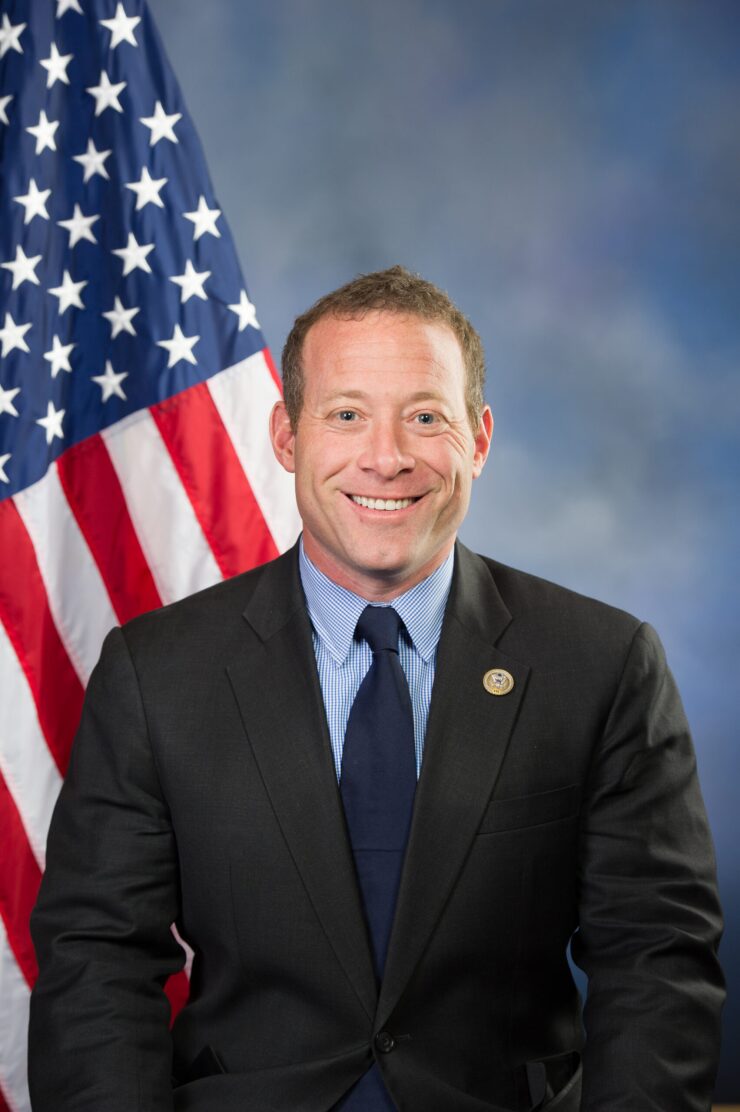Congressional Republicans launched fresh salvos in the partisan battle over environmental, social and governance investment polices last week and Treasury waded into the issue as the
The House Republican ESG Working Group on Aug. 1 released a 37-page
House Judiciary Committee Chair Rep. Jim Jordan, R-Ohio, on July 30 sent letters to more than 130 investment organizations seeking information about their ESG policies and alliances with groups like Climate Action 100-plus, and telling them to preserve “all documents and communications referring or relating to the company’s efforts to advance ESG-related goals.”
The action comes a few weeks after the U.S. Treasury Department weighed in from the other side, warning that some of the state anti-ESG laws could undermine national security.
Rep. Josh Gottheimer’s office
State legislatures have been the main stage for the culture war over “woke” ESG investment practices, with Republican-led states enacting a swath of anti-ESG laws that range from banning certain underwriters from state and local bond issues to prohibiting investments that consider ESG factors.
The battle has also gained traction on Capitol Hill, where the House Financial Services Committee created the Republican ESG Working Group in 2023 and both chambers have held a series of hearings on the topic.
The Treasury Department’s foray into the debate came in response to a query from Rep. Josh Gottheimer, D-N.J., Rep. Blaine Luetkemeyer, R-Mo., and Rep. Brad Sherman, D-Calif.
The trio in early July wrote a
In a
The letter singled out a Florida law that defines as an “unsafe and unsound” any practice that considers non-financial factors when doing business.
“By severely restricting the factors banks may consider when assessing risks, such laws create uncertainty and may inhibit effective anti-money laundering and countering the financing of terrorism and sanctions compliance programs, undermining efforts to promote national security,” Treasury said.
Gottheimer welcomed the “strong response to our bipartisan concerns regarding the national security implications of recent state banking laws,” his office said in an emailed statement. “As a member of both the Intelligence and Financial Services Committees, I will continue to work across the aisle and with our agencies to safeguard our financial system against any and all security threats.”
Treasury’s warning “would be absurd if it wasn’t so serious,” said the NSSF, the firearm industry trade association, in a
“Banks should be banks, not an extension of special-interest agendas bent on forcing through policies that deny essential financial services to entire sectors of business that legally produce and sell their products to law-abiding citizens,” the article said. “The threat to national security doesn’t come from laws that prevent these illegal policies. The threat comes from government agencies wielding unchecked authority to diminish – or even eliminate – the rights belonging to the people and protected by the U.S. Constitution.”
The House Republican ESG Working Group’s report accuses the Biden administration of prioritizing ESG initiatives as part of a “deliberate strategy to circumvent the lack of congressional support for progressive environment and social policy measures.”
It outlines a host of Republican priorities, like increasing oversight of large asset managers and improving ESG rating agency “accountability and transparency to safeguard retail shareholders.”
The report “delivers tangible solutions to increase transparency and accountability surrounding the shareholder and proxy process,” said Rep. Bill Huizenga, R-Mich., who chairs the group, in a release.
